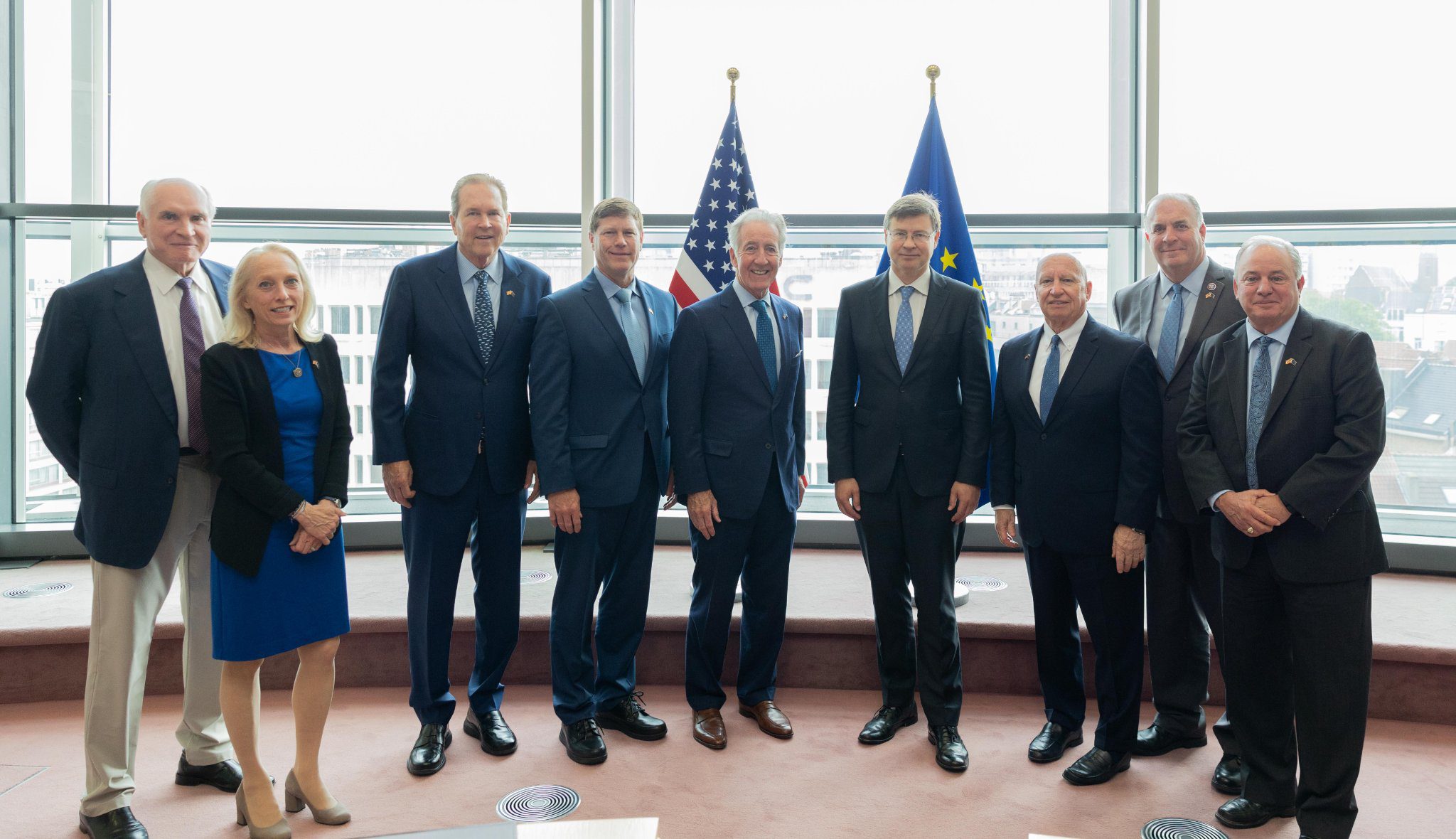
A six-day, fact-finding delegation of U.S. lawmakers to the European Union and Northern Ireland does not appear to have ended the political stalemate in the Northern Ireland Assembly. Whether it will, in the long run, smooth over tensions and assist on-going negotiations between the UK and EU over the Northern Ireland Protocol also remains to be seen.
The nine-member strong delegation, led by Richard Neal, a senior congressman and close ally of U.S. President Joe Biden, started their tour on the continent to meet with European leaders including Dutch Prime Minister Mark Rutte and the EU’s Brexit commissioner, Maroš Šefčovič. They then crossed the English Channel and met with the UK foreign secretary, Liz Truss, in London before finishing the trip in Northern Ireland and meeting with all the political parties of the currently stalled Northern Ireland Assembly.
The purpose of the fact-finding mission was to reinforce support for both the Northern Ireland Protocol and the Good Friday Agreement.
Northern Ireland finds itself in a somewhat delicate political moment. In elections at the beginning of May, Sinn Fein, the Irish party, garnered a historic win by surpassing the unionist Democratic Unionist Party (DUP) in the number of assembly seats. It was the first time in the country’s hundred-year history that an Irish party won assembly elections. But under the 1998 Good Friday Agreement that ended decades of violence in Northern Ireland, known as the Troubles, a government can only be formed with the agreement of both the top Irish and Unionist parties.
Immediately following the elections, the DUP vowed that it wouldn’t vote in any new government until there was clear action on the contentious Northern Ireland Protocol.
One of the last details of the Brexit agreement between the UK and the EU, the Northern Ireland Protocol essentially fixed the trade border between the UK and The Republic of Ireland, which is part of the EU, at the Irish Sea, with the express purpose of keeping the land border between Northern Ireland the Republic of Ireland open. For those with Irish identity, such as Sinn Fein and its voters, this preserves the necessary link between the two Irelands. But it leaves Unionists with their more British-oriented identity feeling cut off from the rest of the UK.
Though hailed by British Prime Minister Boris Johnson as a brilliant compromise in 2020, London is now asking for the protocol to be rewritten, to the consternation of Brussels.
“We can’t renegotiate the protocol: the ink on the signatures is hardly dry,” EU diplomat João Vale de Almeida replied earlier in May to the UK’s demands.
To further tighten the tension, the UK is threatening to move unilaterally on the Northern Ireland Protocol. During a visit to Northern Ireland on May 17th, Prime Minister Boris Johnson promised to introduce legislation to override the protocol in the coming weeks, though it has yet to hit the floor of parliament.
Unilateral action on the part of London could spur a trade war between the UK and EU. This is likely one reason the U.S. stepped in—such an economic battle between its two most important allies is hardly desirable while the West is facing an economic crisis and Russian belligerence.
The other reason the U.S. sent a delegation is American interest in Irish politics. Thanks to the Irish diaspora largely landing in the United States, even into the twentieth century, many Americans have a strong heritage link with Ireland. Neal, the leader of the U.S. delegation, has family ties in Ireland. The United States was a key player in reaching the Good Friday Agreement, and many Irish American politicians would hate to see the peace achievement undermined, a threat some see as real, given the tensions over the Northern Ireland Protocol.
Though the election of Sinn Fein may signal a shift in Northern Irish politics, old tensions still continue to surface. Earlier in the month, a demonstration for an Irish language law brought out the largest crowds yet in a public demonstration in favour of long-awaited legislation to give Gaelic equal status with English in Northern Ireland. Johnson was also greeted by protests against a proposed legislation in London that would grant immunity to those who served during the Troubles, in exchange for their cooperation with the Independent Commission for Reconciliation and Information Recovery.
The unanswered question is whether Northern Ireland would descend back into violence should the forced power-sharing of the Good Friday Agreement be scrapped.
For now, it seems Northern Irish politics will remain at a standstill. First, the American delegation did not seem to pacify Unionists. Neal was harshly criticised for calling the controversy over the protocol “manufactured.” Then, immediately following the delegation’s visit, on Monday, May 30th, the assembly elect gathered for another vote on forming a government—a move managed by Sinn Fein—but with the DUP still vowing to keep the assembly blocked until London had taken action on the protocol.
Meanwhile, the citizens of Northern Ireland are awaiting promised measures to help them through the UK’s cost-of-living crisis caused by rampant inflation.
